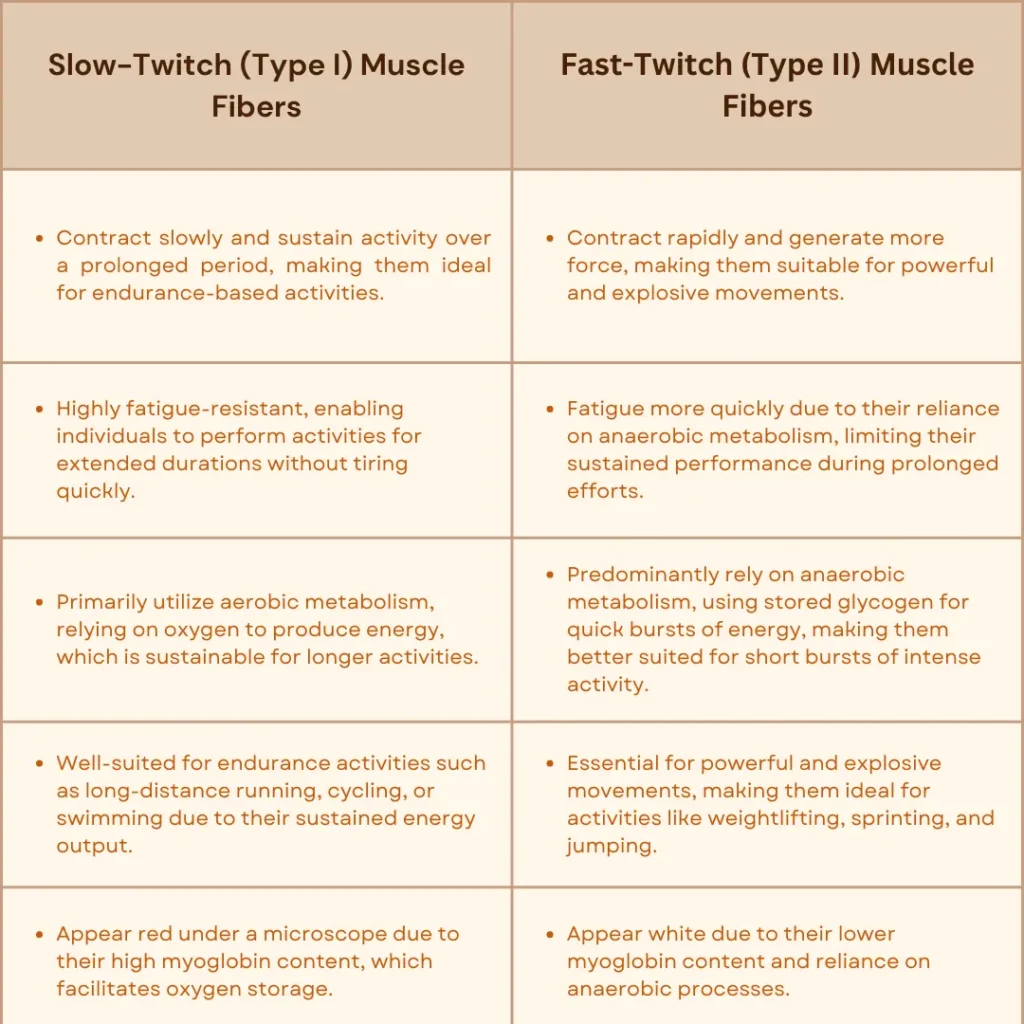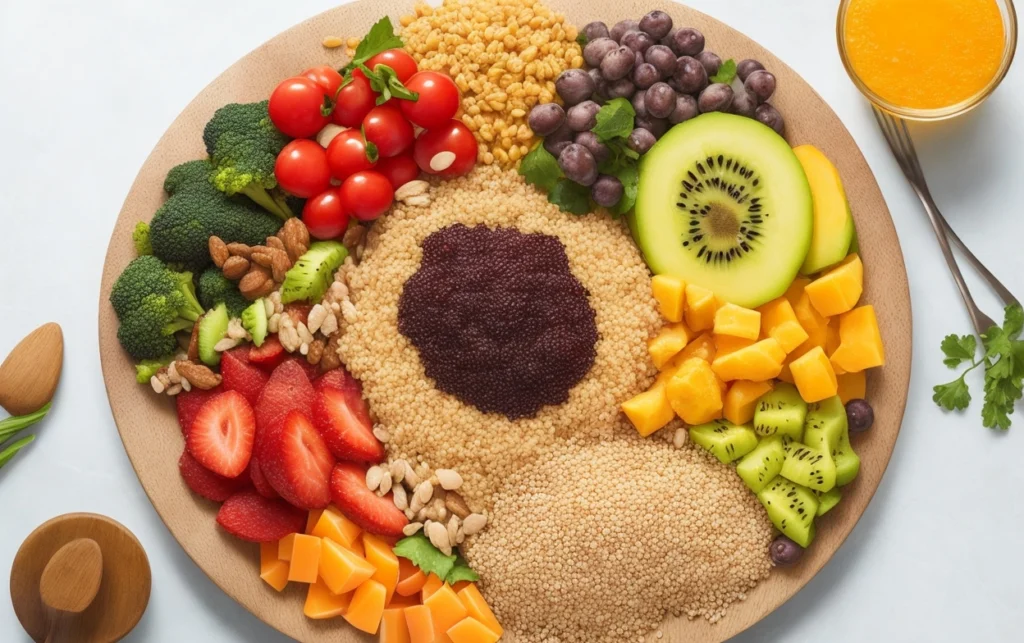Have you ever wondered why some individuals seem naturally muscular without hitting the gym regularly? The topic of “Are Some People Naturally Muscular Without Working Out?” has intrigued fitness enthusiasts and scientists alike. While exercise and diet are primary contributors to muscle growth, genetics also play a pivotal role in determining an individual’s muscularity. In this article, we will explore the fascinating world of muscle development, uncovering the genetic factors and rare mutations that can lead to naturally muscular physiques.

21 DAYS
TO A SLIMMER, SEXIER YOU!
THE SMOOTHIE DIET is a revolutionary new life-transformation system that not only guarantees to help you lose weight and feel better than you have in years, it also promises to eliminate more body fat – faster than anything you’ve tried before.
Understanding Muscle Growth
Muscles grow through a process called hypertrophy, where muscle fibers increase in size as a response to physical stress, such as resistance training. This growth is influenced by various factors, including genetic makeup, lifestyle choices, and hormonal balance.

Genetic Factors and Muscle Development
Inherited Muscle Fiber Type
Muscle fibers can be classified into two main types: slow-twitch (Type I) and fast-twitch (Type II) fibers. The proportion of these fibers varies among individuals and can influence how quickly muscles respond to training. Those with a higher proportion of fast-twitch fibers may experience faster muscle growth.
Difference between Type – I And Type-2 Muscle Fibers

IMyostatin Levels
Myostatin is a protein that regulates muscle growth by limiting its extent. Some individuals naturally produce lower levels of myostatin, leading to enhanced muscle development without the need for excessive workouts.
Naturally Muscular Androgen Receptor Gene Variants
Genetic variations in androgen receptors can influence how effectively muscle cells respond to testosterone, a hormone critical for muscle growth. Individuals with specific gene variants may have a genetic advantage in building muscle mass
Lifestyle and Muscle Development
Physical Activity Level
Regular physical activity, especially resistance training, stimulates muscle growth. Engaging in activities that challenge and stress the muscles can lead to noticeable gains in muscle mass.
Dietary Habits
A balanced diet that provides adequate protein, carbohydrates, and healthy fats is essential for supporting muscle growth and recovery. Proper nutrient intake fuels the body’s ability to build and repair muscle tissues.
Hormonal Balance
Hormones like testosterone and growth hormone play a crucial role in muscle development. Lifestyle factors, including sleep quality and stress management, can impact hormonal balance and indirectly influence muscle growth.
Liv Pure
Lean Belly
Exipure
Rare Genetic Mutations and Muscle Development
Naturally Muscular Myostatin-Related Mutations
In rare cases, individuals may carry genetic mutations that result in extremely low myostatin levels or myostatin dysfunction. This condition, known as myostatin-related muscle hypertrophy, can lead to significantly increased muscle mass.
Other Rare Genetic Conditions
There are other genetic conditions, such as muscular hypertrophy syndrome, that can cause excessive muscle growth, often starting from an early age.
Case Studies of Naturally Muscular Individuals
Several case studies have highlighted individuals who exhibit significant muscle mass without engaging in regular workouts. These studies provide valuable insights into the potential influence of genetic factors on naturally muscular individuals.
Can You Enhance Muscle Development Naturally?
While genetics undoubtedly play a role, most individuals can enhance their muscle development through proper training and nutrition. Even those without a genetic predisposition for substantial muscle growth can achieve noticeable results with dedication and a well-structured workout program.
The Role of Resistance Training
Resistance training remains one of the most effective methods to build muscle mass naturally. Engaging in regular weightlifting or bodyweight exercises stimulates muscle hypertrophy and strength gains.
The Importance of Proper Nutrition
Adequate protein intake is crucial for muscle repair and growth. A balanced diet that provides sufficient calories, protein, and essential nutrients supports muscle development.

Understanding Body Types: Are Some People Naturally Muscular Without Working Out?
Body types, or somatotypes, can influence how individuals respond to exercise and diet. The three main body types are ectomorphs, mesomorphs, and endomorphs, each with unique characteristics that impact muscle development.
1. Ectomorphs:
- Characteristics: Ectomorphs tend to have a lean and slender build with narrow shoulders and hips.
- Muscle Development: They may find it challenging to gain muscle mass and strength, often having a more “ectomorphic” appearance.
- Exercise Approach: Ectomorphs may benefit from resistance training with a focus on progressive overload to stimulate muscle growth effectively. Adequate nutrition is essential for supporting muscle development.
2. Mesomorphs:
- Characteristics: Mesomorphs have a naturally muscular and athletic physique with a well-proportioned frame.
- Muscle Development: They respond well to exercise, gaining muscle mass and strength relatively easily.
- Exercise Approach: Mesomorphs can engage in a balanced exercise routine that includes resistance training and cardiovascular activities to maintain their physique.
3. Endomorphs:
- Characteristics: Endomorphs tend to have a more rounded and softer body shape, with higher levels of body fat.
- Muscle Development: They may have a predisposition to store fat and find it challenging to achieve muscle definition.
- Exercise Approach: Endomorphs can benefit from a combination of resistance training and cardiovascular exercise to manage body composition effectively. A focus on proper nutrition is vital to support fat loss and muscle gain.
Psychological Factors in Muscle Development
Psychological factors, such as motivation, perseverance, and goal setting, play a significant role in achieving muscle development goals. A positive mindset and consistency are essential for long-term progress.
FAQs
1. Are some people born naturally muscular?
–Yes, some individuals may have a genetic advantage that allows them to develop and retain muscle mass more effectively than others.
2. Can I build muscle without working out?
–While genetics may influence muscle development, engaging in regular resistance training is essential for most people to build muscle naturally.
3. What role does diet play in muscle development?
–A well-balanced diet that provides sufficient protein and nutrients is crucial for supporting muscle growth and recovery.
4. Do hormones affect muscle development?
–Yes, hormones such as testosterone and growth hormone play a vital role in muscle development.
5. Can psychological factors impact muscle growth?
–Yes, motivation, consistency, and goal setting are important psychological factors that can influence progress in muscle development.
Conclusion
In conclusion, “Are Some People Naturally Muscular Without Working Out?” is an intriguing topic that reveals the complex interplay of genetics and lifestyle choices in shaping an individual’s muscularity. While some may have a natural advantage in muscle development, most people can enhance their muscles through dedication to exercise and proper nutrition. Understanding these factors empowers individuals to make informed choices on their fitness journey and unlock their true potential.



Nice answer back in return of this difficulty with genuine arguments
and explaining everything on the topic of that.
Sure i will do it.